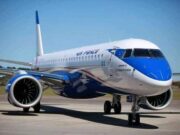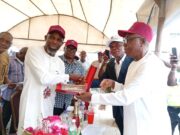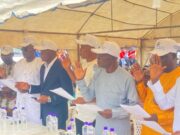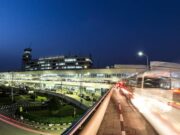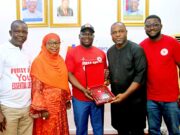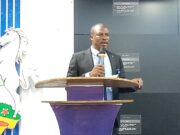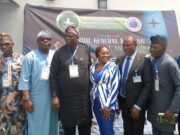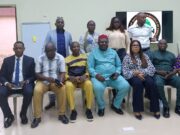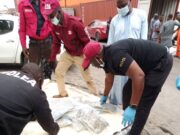President of the National Association of Air Traffic Engineers (NAAE), Mr. Seizling Miri, has drawn attention to the persistent and pressing challenges faced by engineers in Nigeria’s air navigation sector.
He cited inadequate tools, poor working conditions, and lack of operational support as major constraints undermining their performance and limiting the impact they can make.
Speaking at the NAAE’s Lagos Branch AGM, Mr. Miri emphasized that while the management of the Nigerian Airspace Management Agency (NAMA) has made commendable strides, much more is needed to empower engineers and technical personnel to deliver optimally.
He stressed the lack of critical test equipment and modern tools as a key impediment, recounting personal experiences where the absence of such tools had stalled work that would otherwise have been resolved easily with proper gear.
“In the field, I’ve seen our foreign partners bring out tools that seem magical in the way they solve problems. But they aren’t performing miracles; they simply have the right equipment,” Miri said.
He cited a situation in Owerri airport where a simple cable fault kept navigation equipment out of service for over a decade, an issue he was able to resolve in minutes with the right testing device.
“Then I asked the control tower, please ask the next aircraft to check if they are receiving the DME, You know what the pilot said when they asked him? I was monitoring them on radio, you know what the pilot said, Hallelujah! DME in Owerri?. That was his response and what was the magic? It was a testing tool, so there are a lot of test gears that engineers need today that can make our work easy”.
Beyond equipment, the NAAE President painted a stark picture of the engineers’ daily realities, poor transportation to sites, decaying operational vehicles, and in some cases, engineers hitching rides on motorcycles or sitting on tractor slashers just to access critical infrastructure.
He described a particularly demoralizing moment in Jos airport where the only available vehicle was in such a deplorable state that it failed to start without the driver manually crossing wires under the bonnet.
“We’ve been crying for operational vehicles. My predecessor is here. He fought this battle for five years
as NAAE president and we couldn’t achieve that. This is my third year as NAAE president, it has been the same cry. I went to Jos to work, the only operational vehicle they brought to carry me to site even animals you wouldn’t want them to enter that kind of vehicle, am not exaggerating and worse still the vehicle did not start, the driver had to open the engine trying to cross a lot of cables before they move that vehicle to site, I was ashamed of myself, I was ashamed of the station, I felt so bad, this is how bad we can be and today, no vehicles in Jos and many other places”.
Such conditions, he argued, are not only shameful but detrimental to morale and national safety.
“I have gone to a station in Benin, where our ATSEPs staff had to sit on tractor slasher used to cut grass to carry him to site to go and switch on an instrument, this is not a good thing and I think with the new NAMA we have, I believe this should change”.
The situation is exacerbated by the absence of functional workshops in many stations, meaning that once faults are identified, engineers have nowhere to diagnose or repair faulty modules.
He recalled a major recovery operation in Minna airport where over 100 million of supposedly unserviceable modules were salvaged, simply because engineers were finally given access to test and work with them properly.
Staff shortages also featured prominently in Miri’s address, many engineers are overstretched, he said, with some working continuous shifts and repeating duty rosters due to a lack of personnel.
According to him, at a recent drone demonstration in Abuja, one engineer had to leave the event, having been on duty for three consecutive days.
He stressed that without the right work environment, including tools, transportation, functional workshops, adequate staffing, and fair remuneration, engineers cannot be expected to deliver the level of excellence the aviation sector demands.
“No one can think straight on an empty stomach,” he said, noting that engineers must be in the right frame of mind to problem-solve and innovate.
“To make lasting impact, the management must play its part by providing the right environment for us to thrive.”
“The management has a part to play in ensuring that we are given the rightful environment to thrive, the rightful environment to make that lasting impact and I most also add that, a good renumeration is good for an engineer”.
Mr. Miri stated that, this serve as a call to action for the aviation authorities to prioritize the welfare and operational needs of technical staff who remain essential to the safety and functionality of the nation’s airspace infrastructure.





